
UTAR MBBS students Jaclyn Ten Jie Ying and Adrian Chong Jin Yao flew to
Kathmandu, Nepal for their hospital elective attachments on 23 April 2015,
and what came after was a terrifying turn of events that changed their
lives.
“On the third day of our arrival, it was a Saturday and also a holiday in
Nepal. Around 12.30pm, Adrian and I were visiting the Nepal National Museum.
The museum buildings, tress and fences started shaking so hard, and the
walls of the museum collapsed in front of my eyes; I fell to the ground. It
was then that I realised it was an earthquake. What I heard was the sound of
the ground moving. The sound was difficult to describe, but it sounded
terrifying. The earthquake lasted for a minute and the entire town was
filled with dust,” said Jaclyn.
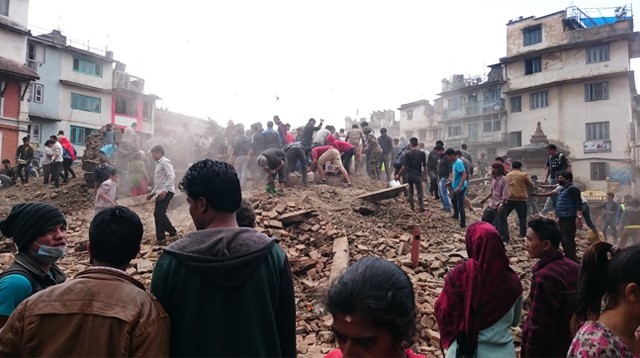
Locals digging through rubble for survivors
Jaclyn and Adrian decided to head back to their homestay in Siphal by foot.
Throughout their two-hour journey, they witnessed many collapsed buildings,
bodies buried under rubble, and people’s cries and screams for the death of
their loved ones.
“We were lucky that our homestay family and their house were still safe. At
night, we camped outside, worried it was unsafe to sleep in the building.
There was no water and electricity. The entire town was pitch black,” she
said.
“That night, the temperature hovered around ten degrees Celsius; it was so
cold that both of us needed to wear layers of jackets, pants and socks.
There were more than 30 aftershocks that night. It was really stressful and
terrifying as we were so exhausted but the sound of the ground’s movement
kept us awake,” she added.
Their terrifying experience did not end there as a 6.9 magnitude aftershock
struck the next day about 1pm, as they were walking back to their homestay
from the hospital.
“That aftershock happened when we were right in front of one of the tall
buildings. My heart was beating fast as I saw that the tall building was
shaking front and back,” Jaclyn said.
Upon receiving news of the arrival of the Malaysian Air Force and Mercy
Malaysia, Jaclyn and Adrian decided to join Mercy and help out at the nearby
Sankhu village instead of returning with the Air Force back to Malaysia.
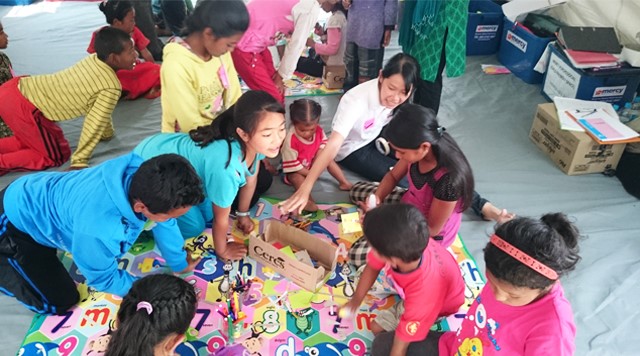
Jaclyn (in white) with local children at Mercy Malaysia Camp
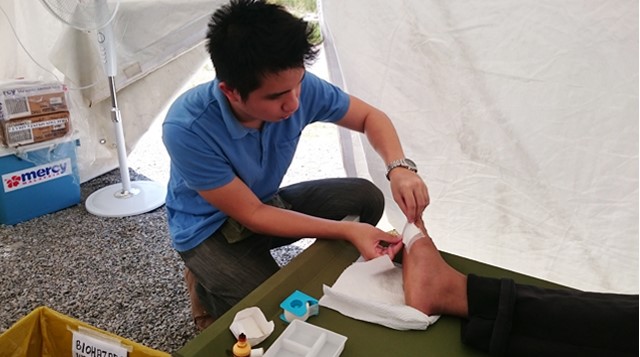
Adrian attending to a patient
“Our parents were initially worried about us and insisted that we go home.
We felt like going home too when we were with the Malaysians at the airport.
However, after a long discussion with Adrian, we decided to stay. Moreover,
we were already here and we had the desire to contribute all we could to
this country which has looked after us, continued being warm and friendly
towards us and showed hospitality to us despite the catastrophe that befell
them,” she said.
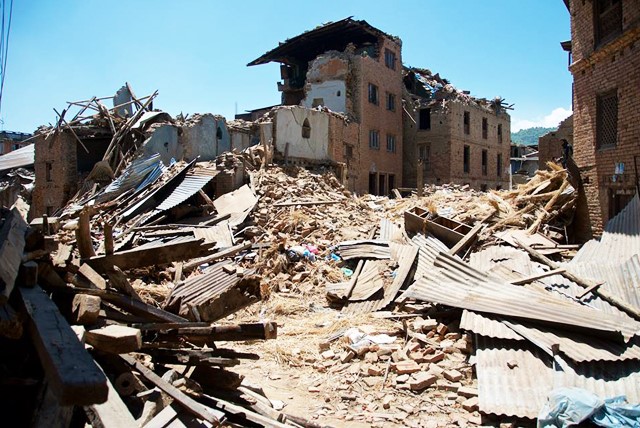
Collapsed buildings in Sankhu
“Almost 80% of the houses and buildings in Sankhu had collapsed. Both Adrian
and I were placed at the pharmacy and dressing department. Every day, we
cleaned more than 30 cut wounds of the earthquake victims, as well as
injected some tetanus shots and painkillers for them. The doctors, nurses
and staff of Mercy Malaysia team were indeed very kind. I learnt a lot from
them,” she said.
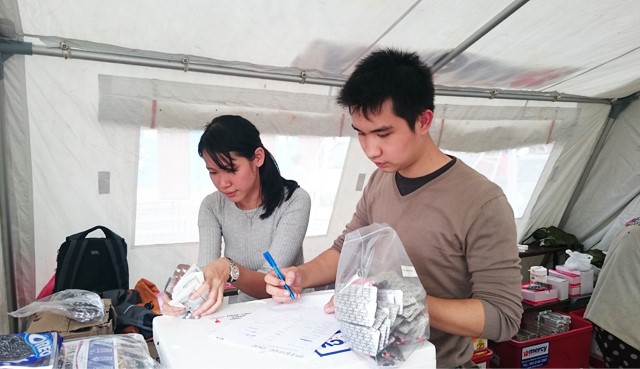
Jaclyn (left) and Adrian (right) working at the pharmacy and dressing
department
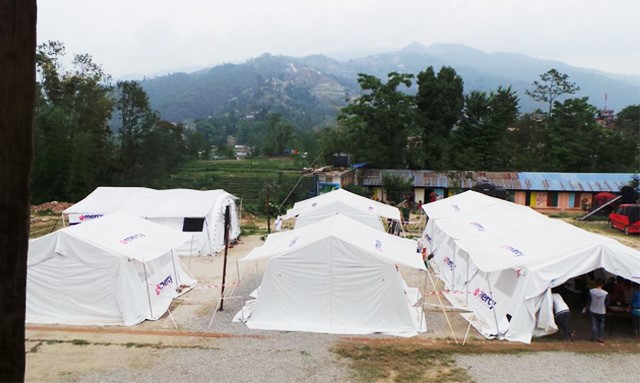
Mercy Malaysia camp in Sankhu
Retrospectively, it was an uncomfortable and traumatising experience, but at
that time Jaclyn and Adrian felt fine because of the people.
“The Nepalese were living in fear ever since the earthquake, which killed
more than eight thousand people, and destroyed many historical buildings,
houses and roads. They had lost so much. Even in the face of adversity, they
showed kindness and selflessness to everyone,” she said.
“Life in Nepal is so simple yet it is full of love. Indeed, Nepal is a
beautiful country,” she added.
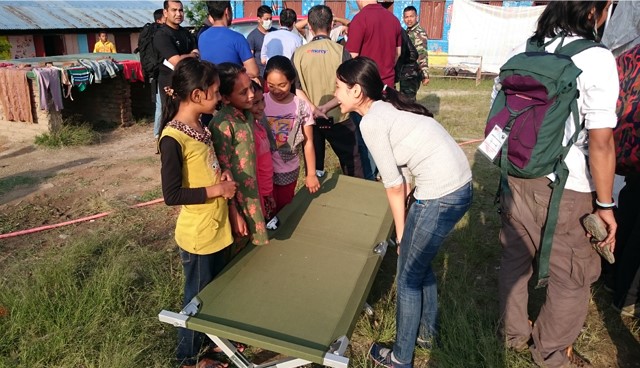
Jaclyn (in white) having a light moment with local children
Wholly owned by UTAR Education Foundation Co. No. 578227-M LEGAL STATEMENT TERM OF USAGE PRIVACY NOTICE